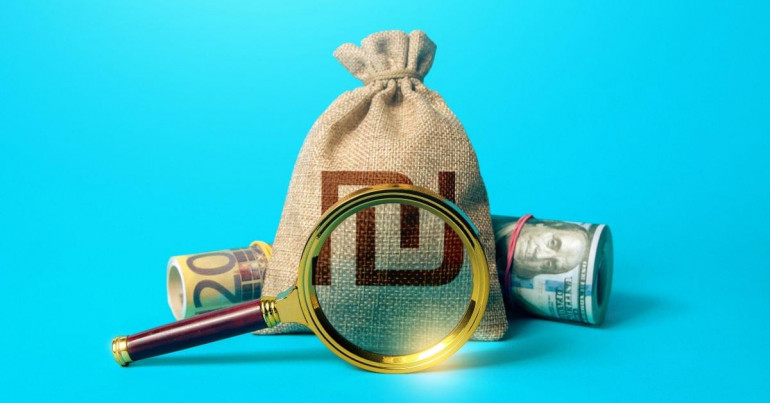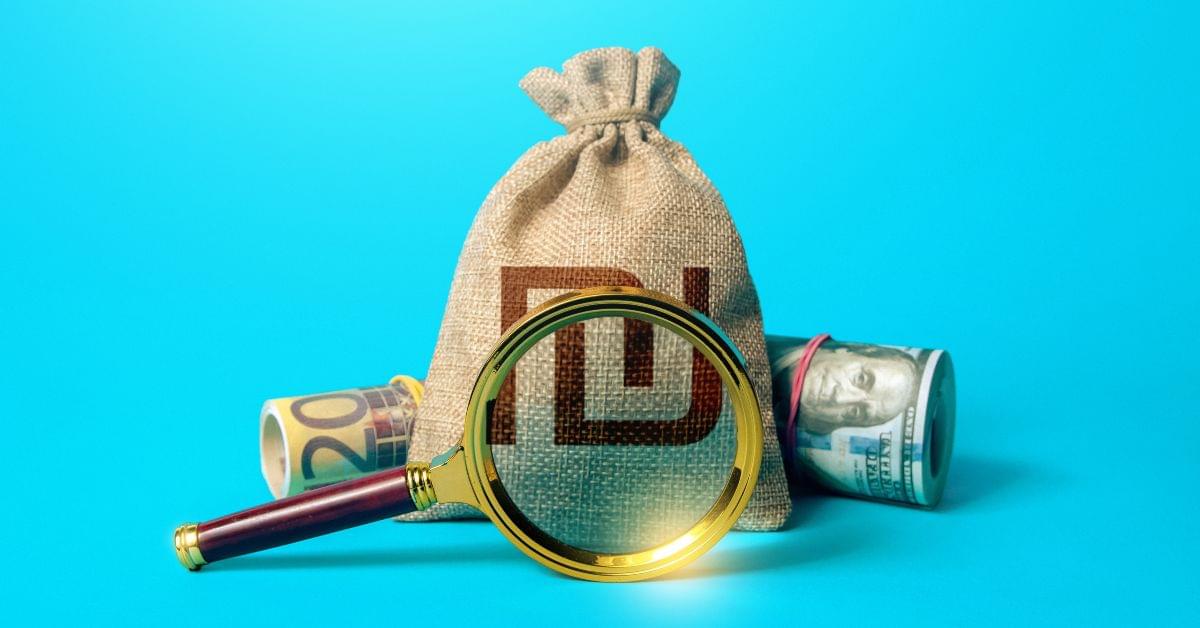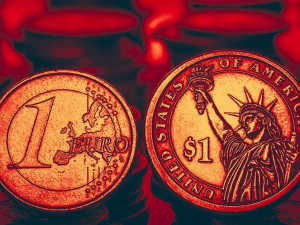
The shekel is the main currency of Israel and has been in circulation since 1985. Despite the challenges the country has faced, the shekel has emerged as one of the strongest and most reliable currencies in the world.

Introduction of the shekel
The modern State of Israel was formed on 14th May 1948 and had its banking system run at the time by the Anglo-Palestine bank. Four years later in 1952, the Anglo-Palestine bank was renamed the Bank Leumi Le-Yisrael (National Bank of Israel) to fit the new nation. The Palestine pound became the Israeli pound the same year – also referred to as the Israeli lira.
In the following years, there was a suggestion to change the name ‘pound’ or ‘lira’ for the currency of Israel, and it was decided that the name should change to ‘shekel’ – a name that is more traditionally Hebrew and references the currency in the Bible. In 1980, the currency name was officially changed.
However, this formed what is now known as the old Israeli shekel (ILR), as due to hyperinflation, a new currency had to be introduced. The new Israeli shekel (ILS) was adopted in 1985 and has been in circulation ever since.
Since then, the shekel has become one of the strongest currencies in the world. But how strong is the shekel, and what makes it a strong currency?
Why is the shekel so strong?
Apart from having vast oil reserves, the shekel is strong for many of the reasons we state in our analysis of Middle Eastern currencies and their strength:
- General economic stability
- Low inflation rate
- Higher interest rates
- Political stability
- Large foreign exchange reserves
These factors will contribute to any currency being strong. Israel has a strong economic performance and a growing economy, and despite the conflict in the region, has managed to maintain a stable political and legal system.
Israel has also benefited from a significant amount of foreign investment. According to an investment report from UNCTAD, Israel ranked 12th on the list of countries with the most amount of foreign investment. Israel’s investment flow also increased by 22% in 2021, and the stock of FDI (Foreign Direct Investment) hit $236bn, which was roughly 48.9% of the country’s GDP.
Why is there foreign investment in Israel?
Israel is an ideal place for foreign investment for many reasons. Firstly, the technology industry is thriving, which many people know is one of the most profitable nascent industries, particularly in the SaaS space. Monday.com, Wix, Waze, Elementor, and Viber are all products of Israel.
The technology hub of Israel is referred to as Silicon Wadi, and is quickly becoming a contender to the original Silicon Valley in terms of innovation and advancements in technology.
The country also has a well-developed financial system and a strong, conservative bank that has proven to implement effective economic strategies. The government of Israel have shown a keen interest in foreign investment and actively encourages it, offering various incentives and programs to attract businesses to the country. Investors are also well-protected by the government, so they can assure that their investments will be safer there than in most other countries – a similar reason that Switzerland attracts foreign money.
Israel also boasts a high-skilled and multilingual workforce, alongside a strong R&D sector. It’s been referred to as ‘Startup Nation’ due to the sheer amount of successful startups in the country. With their small population, this is even more impressive and makes the investment in the country a wise decision.
Another reason is also that Israel is at a prime location between Europe, Asia and Africa, meaning that it can represent a global hub for trade and commerce.
This sustained interest in the country means that the shekel remains a stable currency, and strengthens it against the currencies of the world.
Is the shekel backed by gold?
No. The shekel is a free-floating fiat currency, like the US dollar and the British pound. Its value is determined by the trust in the currency. At the time of writing, 1 shekel is equal to 0.27 US dollars.

Future of the shekel
The shekel is strong today but has the potential for even greater heights. According to i24news, the shekel has the potential to be one of the best investments of 2023. Due to the previously mentioned investment in tech and software, the shekel has a bright future due to the interest in this industry. And last year, despite the slump in the world economy, the shekel actually strengthened against other major global currencies, suggesting a serious resilience to the currency.
The Israeli-Palestinian conflict is always a concern for the shekel, as any kind of political instability can cause a currency to plummet. If Israel is subject to any sanctions or the conflict escalates, then there could be a drop in the value of the shekel, and the support of foreign investment might wane. However, the shekel has shown no sign of weakness, even in times of heightened conflict.
In recent years, Israel has also made significant discoveries of natural gas reserves, with the EIA confirming in 2015 that Israel has 6.2 trillion cubic feet of reserves available. With this relatively recent development in natural gas production, Israel’s economy has the potential to benefit hugely.
Israel’s new coalition government has also been referred to as the most right-wing government in Israel’s history. This could propel the economy forward as many right-wing governments do but cause other issues in turn due to draconian government policies that can infringe on human rights and cause further political instability.
Currently, property in Israel is showing signs of falling, which is a great opportunity for property investors. With the current trajectory of the shekel and Israel’s economy, it is likely that Israel has a bright economic future ahead.
If you’re looking for an expert currency exchange platform to buy shekels, then CurrencyTransfer will provide you with the best options available on the market, for both personal and business reasons. Sign-up today for free.
Caleb Hinton
Caleb is a writer specialising in financial copy. He has a background in copywriting, banking, digital wallets, and SEO – and enjoys writing in his spare time too, as well as language learning, chess and investing.



